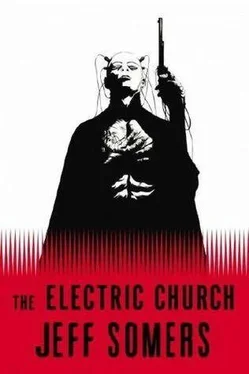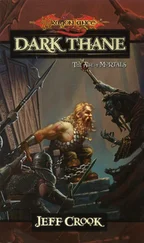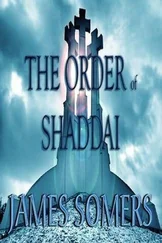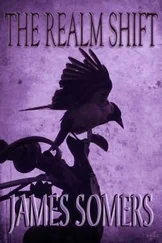Is drinking whisky considered a hobby? No? Are you sure? I’m pretty sure it is, at least in some cultures. Aside from that, I sometimes play chess, as long as you consider pushing pieces around the board desperately to be “playing,” and watch baseball religiously.
How do you see your writing career developing?
The usual: Skyrocket to the bestseller lists, flesh-pressing with the famous and infamous, snarky mentions on Gawker.com. Then comes the big day: The Sci Fi Channel buys rights to my book and makes a movie based on it with Richard Grieco playing the lead, directed by David Lee Roth in his directorial debut, and I am an instant ten-thousandaire. Years of a jetset lifestyle will rob me of my boyish good looks and creative spark, and I’ll finish my days selling personal items on e-Bay to my dwindling population of fans. I will be known as Bathrobe Man by the neighborhood kids because I will always be wearing the same tattered bathrobe.
What would you change about the world if you could?
There would be more used book stores. There simply aren’t enough cool used book stores in the world. That, and I’d eliminate this ridiculous requirement that we all wear pants all the time.
What song is stuck in your head this week?
“William Holden Caufield” by Too Much Joy.
The title does not have any apparent meaning, and no explanation has ever been publicly offered by the Church.
Squalor consistently refers to humans who have not joined the Electric Church as “insects.” The image resurfaces throughout the work, although it is interesting that Squalor also refers to himself in this manner, usually in the same sentence.
Squalor remains an unknown quantity. Prior to Unification he was a student of some promise, earning advanced degrees in biology and computer science. After the turmoil of Unification, he disappeared from public records for a decade, emerging only after having gone through his own process of cyborg conversion-in short, becoming a Monk-and founding the Church.
There is a sense of contempt for biology throughout the Codex and other Church writings, accompanied by a reverence for technology. The physical body produced by evolution is often referred to in terms of disposability and corruption (i.e. rot, decomposition, impermanence) whereas technology-obviously represented by the Monks’ artificial bodies-is presented as lasting forever. Monks will often stress the eternal nature of their bodies when accosting citizens in the streets.
Throughout the Codex there are many of these binary statements, pairs of options and conditions that Squalor compares, resulting in a very simple and compelling view of the universe-there is good and bad, eternity and damnation, sin and industry.
The Electric Church was granted Recognition as a legal religion, protected under standing order 778, eight years ago.
Throughout the Codex, Squalor shifts from venerating God as the creator and the architect to dismissing God as a fantasy to be ignored, often within the same page or even the same paragraph.
Here is the fundamental concept of the Electric Church: The idea that mankind’s eventual salvation is possible only through our mastery of technological and scientific knowledge. Specifically, the Church preaches that only through centuries, even epochs of meditation and study can salvation be attained-the necessary lifespan being supplied by the cyborg bodies Squalor has designed and built, as well as the process he has devised for transferring a human brain into one.
This is a disturbing passage to many, and is often quoted by those who claim the Church has engaged in violence against innocent citizens who do not voluntarily join or listen to preaching. It should be noted that there is not a single documented complaint against the Church filed by a reliable citizen of standing, and that all complaints from less reliable citizens have been retracted over time.
This text is often quoted at length by Monks when preaching to an individual. It has appeared in several transcripts of SSF surveillance of Electric Church assets.
It is interesting to note that while the impossibility of “attaining” salvation in our normal lifespans is stressed in the Codex , at no point is any mechanism or procedure for attaining salvation after conversion ever outlined. The clear implication is that conversion into a Monk is the necessary first step-in order to attain the time needed-but beyond that there is no hint as to what a Monk should be doing with eternity. The assumption must be that instructions will follow.
This passage appears several times throughout the Codex , reproduced exactly.
Elsewhere in the Codex the idea that only a small number of “souls” are constantly being recycled into new physical bodies is expanded, with lengthy contemplations on the mathematics of reincarnation (explaining, somewhat inconclusively, how a limited number of souls inhabits a population that has-except for the brief period before and after Unifi-cation-grown steadily over the years) and the lack of past-life memories.
Squalor never actually defines what this “singularity” he experienced was, though it is widely believed to be a reference to his own conversion into a cyborg, which (see below) does not seem to have been an experience he expected to survive.
Although there have been exceptions, most studies done on Church recruitment (mainly using SSF field reports as source material) show that the Church targets the criminal class almost exclusively. Citizens that would be termed “upper class” or at the very least legally employed are all but ignored by the Monks. In urban centers, where the Monks are concentrated and numerous, they remain almost exclusively in the plentiful “reconstruction zones” left over from the Unification Riots-downtown Manhattan, for example. Most SSF officers consider the Monks’ activities amongst the petty criminals and marginal citizens of these areas to be of no concern, or even, in some cases, a benefit to the System in that they remove undesirable elements from these areas. No Monk has ever been charged with a crime postconversion.
It is curious that Squalor here berates readers for “imagining” their impact on the world, and yet he clearly states that he is the “patient zero” of the Electric Church’s “singularity.” Although it can be assumed that if you have been chosen by God to perform a task, the rules no longer apply to you.
Prior to his disappearance, apparent suicide attempt, and reappearance as head of the Electric Church, Dennis Squalor in fact worked for the Joint Council in the first years after Unification. Records are under seal, and are scarce in any event due to the frequent disruptions suffered post-Unification before the establishment of the System Security Force, but his name can be found on several disbursement orders from the first and second Council sessions. The nature of the work he did for the Joint Council is not known, though considering his training it would likely have been scientific in nature.
Details are scant, but there is some evidence that Squalor’s suicide attempt was actually conducted by performing his cyborg-conversion technique on himself. It is interesting that he apparently regarded the chance of a successful conversion to be so low as to be virtual suicide.
Читать дальше












